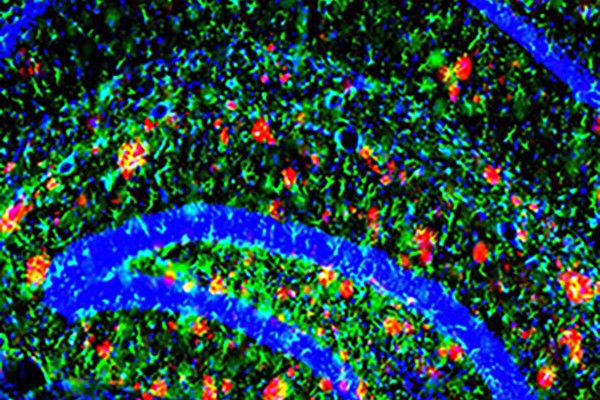Brain’s ability to dispose of key Alzheimer’s protein drops dramatically with age
The greatest risk factor for Alzheimer’s disease is advancing age. Researchers at Washington University School of Medicine in St. Louis have identified some of the key changes in the aging brain that lead to the increased risk. The changes center on amyloid beta 42,
a main ingredient of Alzheimer’s brain plaques.
Midlife changes in Alzheimer’s biomarkers may predict dementia
Studying brain scans and cerebrospinal fluid of healthy
adults, scientists have shown that changes in key markers of
Alzheimer’s disease during midlife may help identify those who will
develop dementia years later, according to new research.
Scientists find new link between diabetes and Alzheimer’s
Researchers have uncovered a unique connection between
diabetes and Alzheimer’s disease, providing further evidence that a
disease that robs people of their memories may be affected by elevated blood sugar, according to scientists at
Washington University School of Medicine in St. Louis.
Antidepressant may slow Alzheimer’s disease
Antidepressants can reduce production of the main ingredient of Alzheimer’s brain plaques, according to new research at Washington University School of Medicine in St. Louis and the University of Pennsylvania. The plaques are highlighted in red in this image of a mouse’s brain.
Alzheimer’s markers predict start of mental decline
School of Medicine researchers have shown that several markers for presymptomatic Alzheimer’s disease identified in recent years are accurate predictors of Alzheimer’s years before symptoms develop. Catherine Roe, PhD, says researchers found no differences in the accuracy of the biomarkers.
New perspective needed for role of major Alzheimer’s gene
Scientists’ picture of how a gene strongly linked to
Alzheimer’s disease harms the brain may have to be revised, researchers
at the School of Medicine have found. Washington University’s David M. Holtzman, MD, says leading researchers recently agreed that targeting this gene is a promising approach for gaining a better understanding of and improving treatments for the disease.
Study in mice suggests sleep problems may be early sign of Alzheimer’s
Sleep disruptions may be among the earliest indicators
of the start of Alzheimer’s disease, scientists at Washington University
School of Medicine in St. Louis report this week in Science
Translational Medicine. David M. Holtzman, MD, the Andrew B. and Gretchen P. Jones Professor and
head of the Department of Neurology, is the study’s author.
Alzheimer’s plaques disrupt brain networks
Scientists studying the way Alzheimer’s disease takes root in
the brain have identified important new similarities between a mouse
model and human Alzheimer’s. Researchers at Washington University School of Medicine in St. Louis
have shown that brain plaques in mice are associated with disruption of
the ability of brain regions to network with each other.
Malfunctioning protein contributes to Alzheimer’s plaques
Scientists at Washington University School of Medicine in St. Louis have found that a protein made by a key Alzheimer’s gene slows the brain’s ability to get rid of amyloid beta, the main ingredient of the amyloid plaques that characterize the devastating illness.
Alzheimer’s patients can’t effectively clear sticky plaque component
Neurologists finally have an answer to one of the most important questions about Alzheimer’s disease: Do rising brain levels of a plaque-forming substance mean patients are making more of it or that they can no longer clear it from their brains as effectively? A new study by Randall Bateman, MD, assistant professor of neurology, shows clearance is impaired in Alzheimer’s patients.
View More Stories


